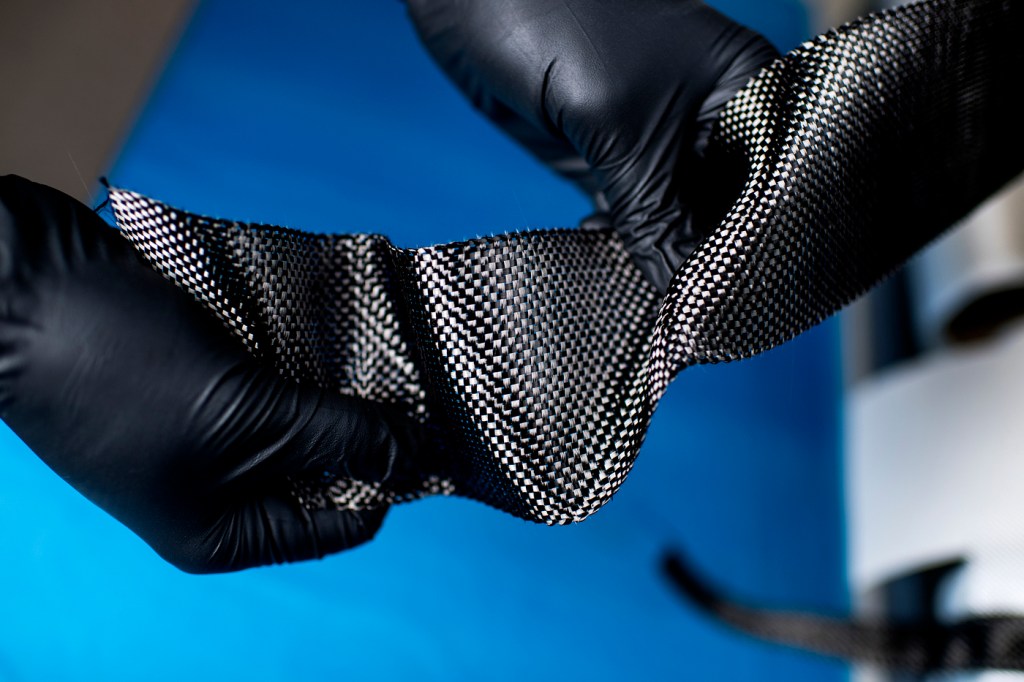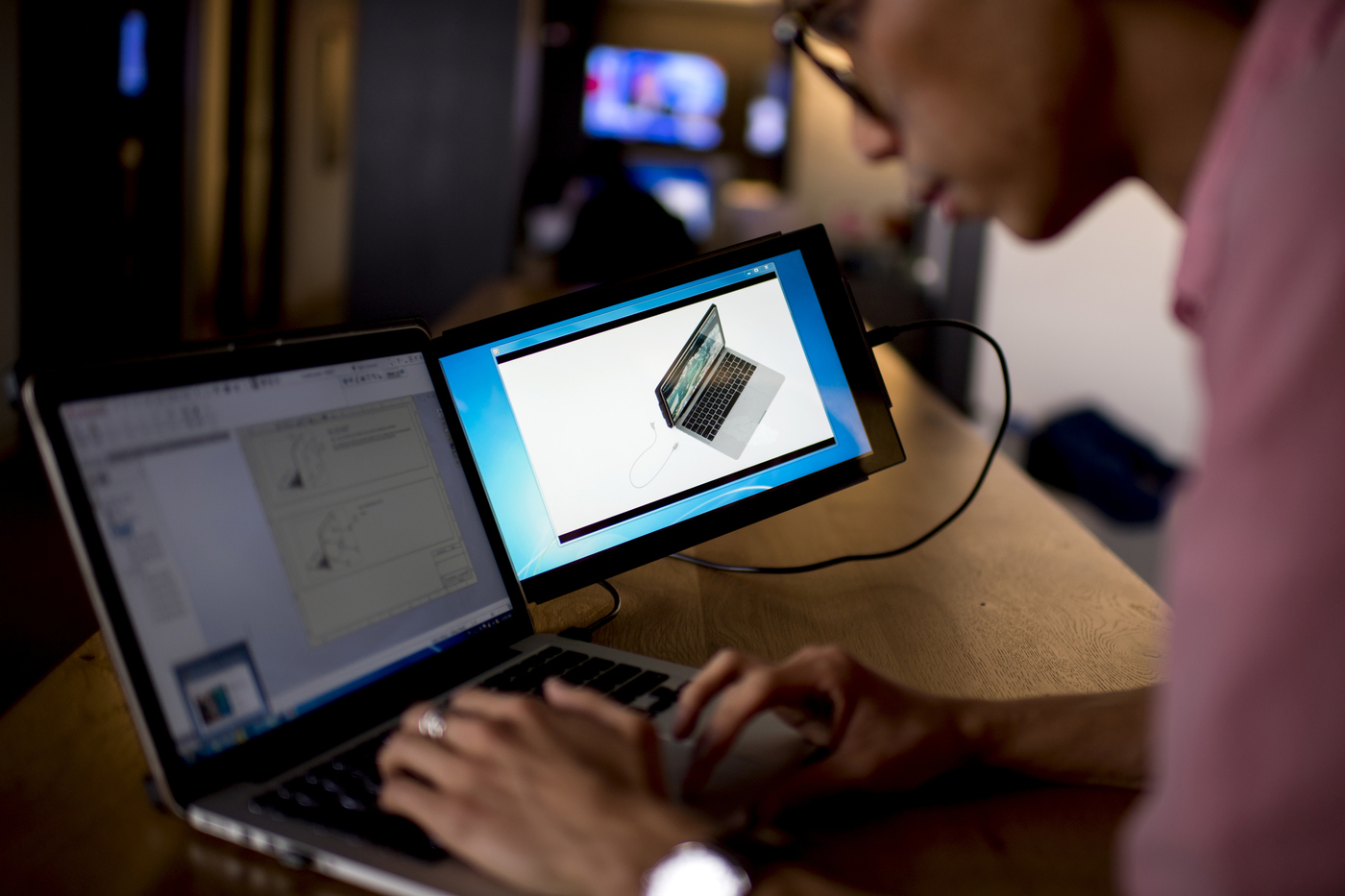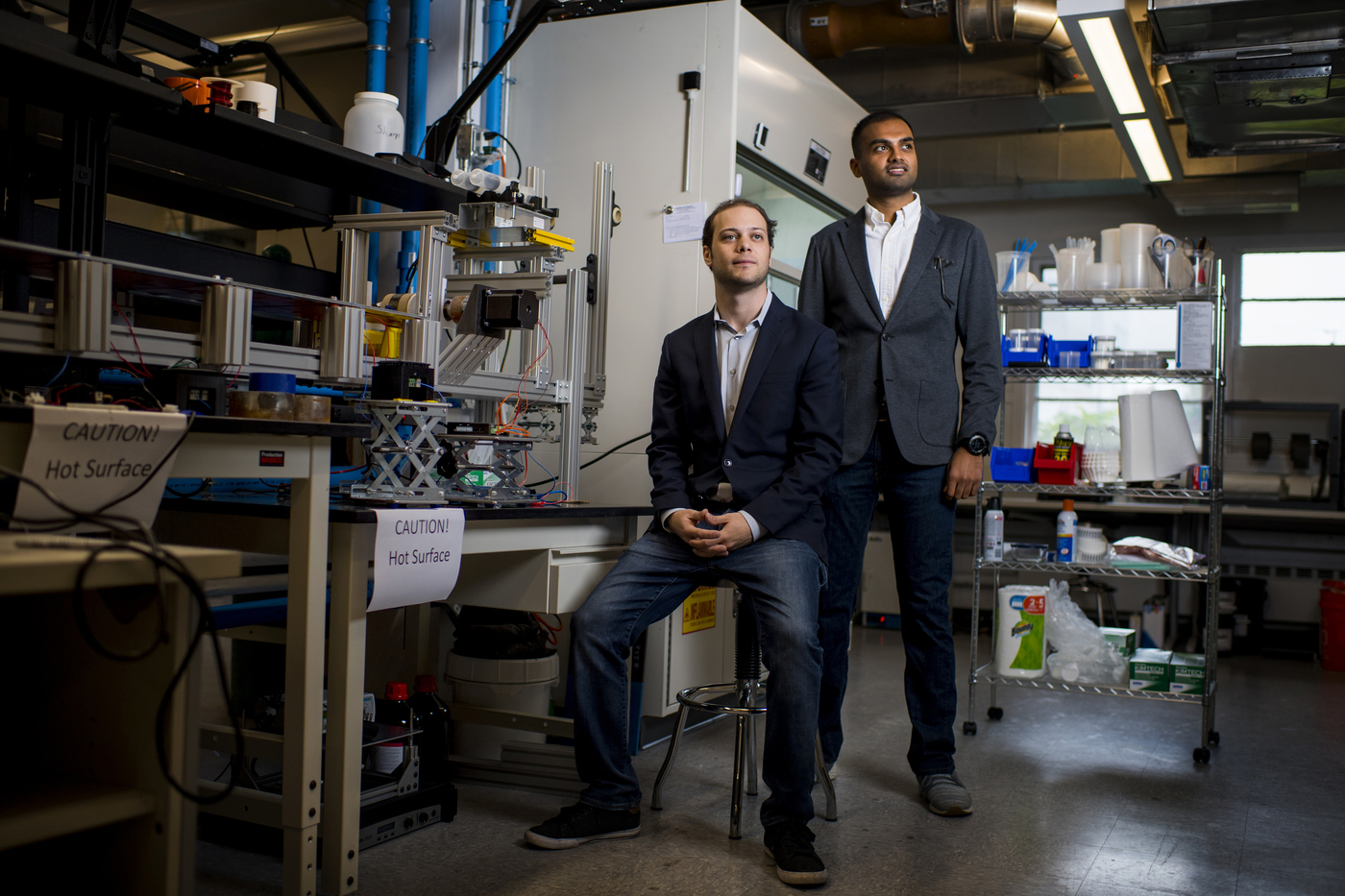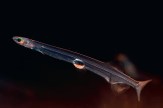Two Northeastern startups named MassChallege Boston finalists, competing for $1.5M in cash prizes

Two startups founded by members of the Northeastern community have been named finalists in MassChallenge Boston, a global business accelerator program for companies in the early stages of development.
Boston Materials produces strong carbon fiber composite materials that could be used to manufacture sports equipment, aircraft components, and other products to be lighter than ever but equally as durable.
Mobile Pixels has designed a second screen that can be attached to a laptop, a product the company said helps users multitask and be more productive while on-the-go.

The Northeastern entrepreneurs behind Mobile Pixels have created a secondary screen that attaches to your laptop to make you more productive on-the-go. Photo by Matthew Modoono/Northeastern University
As two of the 26 finalists in this year’s MassChallenge Boston program, Boston Materials and Mobile Pixels are now competing for equity-free shares of $1.5 million in prize money. The winners will be announced at an awards ceremony on Wednesday, Oct. 17.
Northeastern graduates Michael Segal and Anvesh Gurijala co-founded Boston Materials with Northeastern professor Randall Erb, who developed a patented method for magnetically assembling particles that the company is now using to develop better composites.
Boston Materials takes existing carbon fiber composite fabrics, which are woven together two-dimensionally on the “x” and “y” axes, and adds short carbon fibers to the “z” axis. Segal and his colleagues then add resin to the material in between the fibers to help them bond, a process that is similar to using mortar to bind together building blocks such as bricks and stones. Segal said reinforcing the composite materials three-dimensionally makes them stronger and less prone to peeling apart than any other materials on the market.
The company has received grants from the National Science Foundation and the Massachusetts Clean Energy Center’s Catalyst program to explore how these composite materials could be used in building wind turbines. Segal said that seven companies, including bicycle and lacrosse stick manufacturers, are interested in testing the startup’s composites to see if they can improve their products.
Northeastern student Stephen Ng and MIT student Jack Yao co-founded Mobile Pixels. The company has been named a top 26 finalists in MassChallenge Boston, a business accelerator program. Photo by Matthew Modoono/Northeastern University
“What’s really unique about our product is we come in an industry-standard format,” Segal said. “[The manufacturers] already know how to use our material and it reduces the barrier to adoption.”
Northeastern graduate student Stephen Ng co-founded Mobile Pixels with Massachusetts Institute of Technology alumni Jack Yao and Shruti Banda. They created DUO, a secondary screen for laptops that can be used to boost productivity while on-the-go.
Yao conceived the idea for DUO during an internship at Amazon, after he got frustrated that he was less productive using a laptop than he was using a dual-screen desktop. So he built a prototype of a second laptop screen, told Ng about his idea, and formed Mobile Pixels with his friend. Ng said he realized how helpful a second laptop screen would be while studying for a midterm exam in Snell Library. “I remember thinking if I had an additional monitor, with my class materials on one side and my notes on the other, I could study a lot better,” Ng said.

Boston Materials co-founders, Michael Segal, left, and Anvesh Gurijala pose for a portrait at the Northeastern University Innovation Campus in Burlington, Massachusetts. on Oct. 2, 2018. Photo by Matthew Modoono/Northeastern University
The second screen attaches to laptops using magnetic adhesive and slides out to the side of the laptop’s main screen. It is 12.5 inches wide diagonally, weighs less than 1-and-a-half pounds, and is powered by a USB cable that connects to the laptop.
Mobile Pixels received funding from IDEA, Northeastern’s student-run business accelerator, and MIT’s Sandbox innovation fund program. In recent months, the company has also raised over $1 million by running a crowdfunding campaign on Kickstarter and taking pre-orders on Indiegogo InDemand. The first batch of DUOs is expected to ship to customers in January 2019. The company plans to launch its next product, which it’s keeping under wraps, in March.





